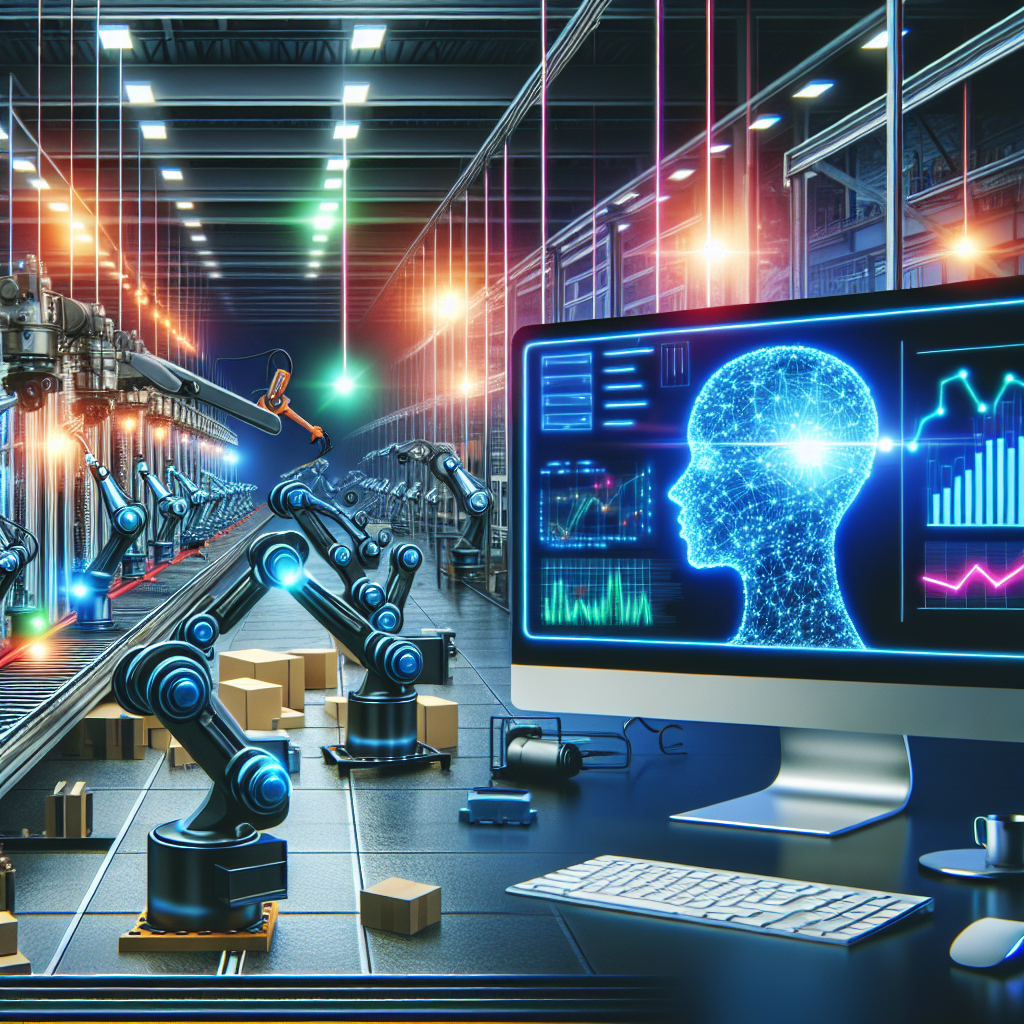The Impact of AI on Manufacturing Processes
Artificial Intelligence (AI) has been transforming industries across the globe, and the manufacturing sector is no exception. From predictive maintenance to quality control, AI has the potential to revolutionize the way products are made. In this article, we will explore the impact of AI on manufacturing processes and how it is changing the industry.
Predictive Maintenance
One of the key areas where AI is making a significant impact in manufacturing is predictive maintenance. Traditionally, maintenance schedules are set based on time intervals or the number of cycles a machine has completed. This can lead to unnecessary downtime and increased maintenance costs.
AI, on the other hand, uses machine learning algorithms to analyze data from sensors and other sources to predict when a machine is likely to fail. By monitoring the condition of machines in real-time, AI can help manufacturers identify potential issues before they occur, allowing for proactive maintenance and reducing downtime.
Quality Control
Another area where AI is transforming manufacturing processes is in quality control. AI-powered systems can analyze images and data from production processes to detect defects and anomalies in real-time. This allows manufacturers to identify and address quality issues quickly, reducing waste and improving product quality.
AI can also help manufacturers optimize production processes by identifying ways to improve efficiency and reduce waste. By analyzing data from sensors and other sources, AI can identify patterns and trends that can help manufacturers optimize their processes and reduce costs.
Supply Chain Management
AI is also being used to improve supply chain management in manufacturing. By analyzing data from suppliers, inventory levels, and production processes, AI can help manufacturers optimize their supply chain and reduce lead times. This can help manufacturers reduce costs and improve efficiency in their operations.
FAQs
Q: How does AI improve manufacturing processes?
A: AI can improve manufacturing processes by enabling predictive maintenance, optimizing quality control, and streamlining supply chain management. By analyzing data in real-time, AI can help manufacturers identify potential issues before they occur, reduce downtime, improve product quality, and optimize production processes.
Q: What are the benefits of using AI in manufacturing?
A: The benefits of using AI in manufacturing include increased efficiency, reduced downtime, improved product quality, and reduced costs. By leveraging AI-powered systems, manufacturers can optimize their processes, improve decision-making, and gain a competitive edge in the market.
Q: What are some examples of AI applications in manufacturing?
A: Some examples of AI applications in manufacturing include predictive maintenance, quality control, supply chain management, and process optimization. These applications can help manufacturers improve efficiency, reduce waste, and enhance the overall performance of their operations.
Q: How can manufacturers implement AI in their operations?
A: Manufacturers can implement AI in their operations by investing in AI-powered systems, training their employees on AI technologies, and collaborating with AI experts and vendors. By leveraging AI in their operations, manufacturers can transform their processes and gain a competitive advantage in the market.
In conclusion, AI is revolutionizing the manufacturing industry by enabling predictive maintenance, optimizing quality control, and streamlining supply chain management. By leveraging AI-powered systems, manufacturers can improve efficiency, reduce downtime, and enhance product quality. As AI continues to evolve, its impact on manufacturing processes is only expected to grow, leading to a more efficient and competitive industry.

